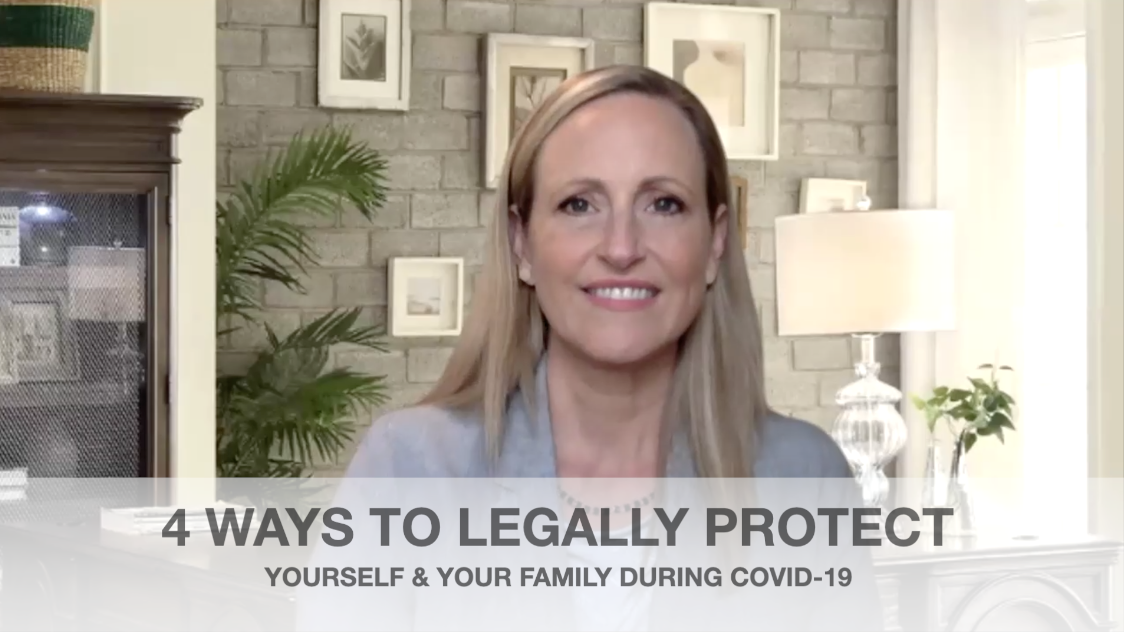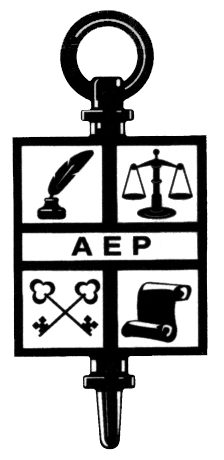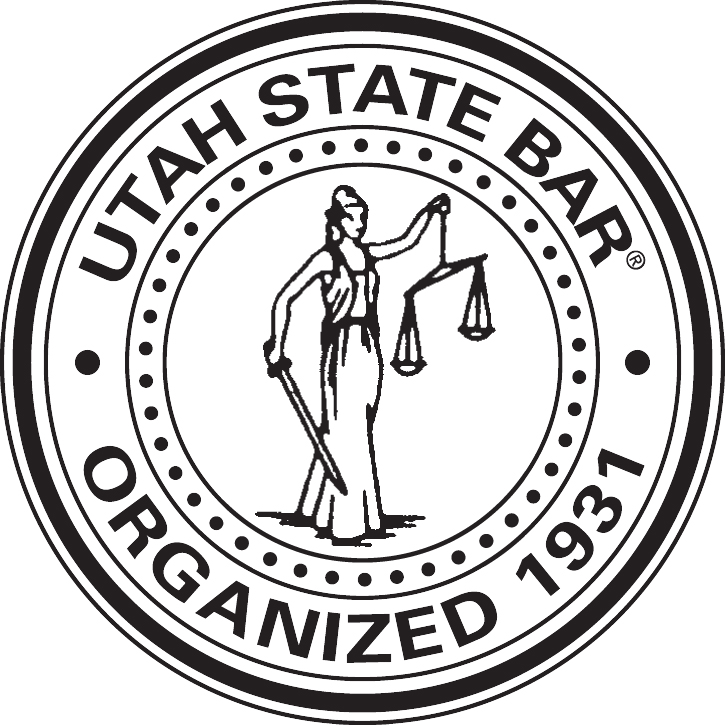Marianne Ludlow, an experienced Utah estate planning attorney, discusses 4 ways you can legally protect yourself and your family during the COVID-19 outbreak.

Marianne Ludlow


COVID-19: Wills, Trusts, Healthcare Directives and other Legal Protections in the Midst of the Outbreak in Utah
COVID-19 Estate Planning, Marianne Ludlow, March 28, 2020I’ve been an estate planner for over 20 years and haven’t seen anything quite like the situation we are in now. I’ve been getting a lot of questions about what a person can do to legally plan for and protect themselves and their loved ones in this situation so I thought I’d provide some answers in this article. Several legal documents work together to ensure that you and your family are protected and that the people YOU choose are making the decisions you want. Once you become incapacitated, you can no longer designate who will make decisions on your.

The SECURE Act and Its Effect on Your Retirement Savings
Estate Planning, Marianne Ludlow, Retirement Planning, January 22, 2020In December of 2019, President Trump signed the Setting Every Community Up for Retirement Enhancement Act (SECURE Act) effective January 1, 2020. The Act is the most impactful legislation affecting retirement accounts in decades. The SECURE Act has several positive changes: It increases the required beginning date (RBD) for required minimum distributions (RMDs) from your individual retirement accounts from 70 ½ to 72 years of age, and it eliminates the age restriction for contributions to qualified retirement accounts. However, perhaps the most significant change will affect the beneficiaries of your retirement accounts: The SECURE Act requires most designated beneficiaries to.

Should You Talk With Your Family about Your Estate Plan
Estate Planning, Family, Marianne Ludlow, November 23, 2019Many of us labor a lifetime to build up our assets and fight for causes that matter to us. Few things are more fulfilling than the thought of sharing what we have worked hard for and leaving a legacy for family. Of course, it’s impossible to plan for every eventuality, but careful conversations can reduce two future risks: a) Your intentions regarding your estate weren’t made clear, resulting in the potential for costly, time-consuming conflict. b) Your family or other beneficiaries did not understand or share your wealth management vision, resulting in assets not being managed well after your death. The good.

Can a Community Property Trust Save You Taxes
Estate Planning, Marianne Ludlow, Tax Savings, November 23, 2019When it comes to your family’s legacy, every dollar you can save from tax collection counts. One way to keep your assets out of the hands of the IRS is the formation of a community property trust. Why Establish A Community Property Trust The short answer is it can save a married couple substantial capital gains taxes on highly-appreciated property (e.g. stock, real property, business interests) sold after the first spouse dies. All the assets in a community property trust are eligible for a step-up in their tax basis on the death of the first spouse, whereas, in a typical Utah revocable trust, only.

Passing on Your Wisdom with Your Wealth
Estate Planning, Family, Marianne Ludlow, October 18, 2019Many people who inherit wealth or small businesses are at significant risk for essentially squandering the wealth. Here are a few pointers for setting up your beneficiaries for success:

Keeping a trust a secret could violate Utah law
Marianne Ludlow, Trustee, Wills and Trusts, September 3, 2018If your estate plan includes one or more trusts, you may have a good reason for wanting to keep them a secret. For example, you may be concerned that, if your children or other beneficiaries knew about the trust, they might spend recklessly or neglect educational or career pursuits. Despite your good intentions, however, Utah law requires the trustees of certain trusts to disclose specific information to beneficiaries. Disclosure requirements Revocable Trust: Revocable Trust: If a trust is revocable and the person forming the trust (the “Settlor”) has the capacity to revoke the trust, then a trustee’s duties are owed.

Powers of attorney: What type do you need?
Disability Planning, Estate Planning, Marianne Ludlow, Power of Attorney, August 28, 2018Estate planning typically focuses on what happens to your assets when you die. But it’s equally important (some might say more important) to have a plan for making critical financial and medical decisions if you’re unable to make those decisions yourself. That’s where the power of attorney comes in. A question that people often struggle with is whether a power of attorney should be springing or nonspringing. To spring or not to spring A springing power of attorney is effective on the occurrence of specified conditions; a nonspringing, power of attorney is effective immediately. Typically, springing powers would take effect if.

Provide for your spouse, then your kids, with a QTIP trust
Estate Planning, Estate Tax Savings, Family, Marianne Ludlow, Wills and Trusts, August 17, 2018If you want to preserve as much wealth as possible for your children, but you leave property to your spouse outright, there’s no guarantee your objective will be met. This may be a concern if your spouse has poor money management skills or if you two don’t see eye to eye on how assets should be distributed to your children. It could also be a concern if you have children from a previous relationship; you may want to provide for a current spouse while he or she is alive, but have your assets go to your children upon your spouse’s.

How to maintain family harmony with Trusts
Asset Protection, Blended Families, Estate Planning, Marianne Ludlow, Wills and Trusts, August 8, 2018A traditional trust can sometimes create a conflict between the lifetime (i.e. beneficiaries that have an interest in trust assets just for their lifetime) and remainder beneficiaries (i.e. beneficiaries that have an interest in the trust after the lifetime beneficiary). For example, a person may establish a trust that gives their surviving spouse a lifetime income interest in the trust assets but, upon the spouse’s death, pays the remainder of the trust’s assets to their children. In that situation, investment strategies that provide growth that benefits the children (the remainder beneficiaries) can leave the spouse (the lifetime beneficiary) with little.

Your original will: Does your family know where to locate it?
Estate Planning, Marianne Ludlow, Uncategorized, Wills and Trusts, July 27, 2018In a world that’s increasingly paperless, you’re likely becoming accustomed to conducting a variety of transactions digitally. But when it comes to your last will and testament, only an original, signed document will do. A photocopy isn’t good enough Many people mistakenly believe that a photocopy of a signed will is sufficient. In fact, if a probate is necessary, Utah requires that a deceased’s original will be filed with the probate court. If your family or executor can’t find your original will, there’s a presumption that you destroyed it with the intent to revoke it. That means the court will generally.

Use the Proper Tools to Fix a Broken Trust
Estate Planning, Marianne Ludlow, Tax Savings, Wills and Trusts, July 14, 2018An irrevocable trust has long been a key component of many estate plans. But what if it no longer serves your purposes? Is it too late to change it? Under Utah law, there are options to fix a “broken

A SLAT Irrevocable Trust Can Offer Estate Tax Savings
Asset Protection, Estate Planning, Estate Tax Savings, Marianne Ludlow, Wills and Trusts, July 3, 2018The most effective estate planning strategies often involve the use of irrevocable trusts. But what if you’re uncomfortable placing your assets beyond your control? What happens if your financial fortunes take a turn for the worse after you’ve irrevocably transferred a sizable portion of your wealth? If your marriage is strong, a spousal lifetime access trust (SLAT) can be a viable strategy to obtain the benefits of an irrevocable trust while creating a financial backup plan. Indirect access A SLAT is an irrevocable trust that authorizes the trustee to make distributions to your spouse if a need arises. Like other.

What estate planning strategies are available for non-U.S. citizens?
Estate Planning, Family, Marianne Ludlow, Wills and Trusts, June 30, 2018Non-U.S. citizens in the United States face some estate planning challenges when it comes to taxes. If you’re a U.S. resident, but not a citizen, the IRS treats you similarly to a U.S. citizen, with a few exceptions. But if you’re a nonresident alien, the tax treatment of your estate will be significantly different. Understanding residency IRS regulations define a U.S. resident for federal estate tax purposes as someone who had his or her domicile in the United States at the time of death. One acquires a domicile in a place by living there, even briefly, with a present intention.

4 estate planning techniques for blended families
Estate Planning, Family, Marianne Ludlow, Wills and Trusts, June 30, 2018Today, it’s not unusual for a family to include children from prior marriages. These “blended

Indicators Your Estate Plan is Out of Date
Estate Planning, Family, Marianne Ludlow, January 17, 2018There are many reasons to review and revise your legal documents often. Your answers to these important questions may indicate a need for updates. Here are some potential issues that may arise if you haven’t checked your estate plan lately, and some ways to resolve those issues. Potential Issue: Is the plan out of date? Remedy: Older plans are not bad if they accomplish the client’s goals. But new and improved techniques are being developed every day. Potential Issues: Was your plan drafted before 2011? Remedy: In 2011, tax laws changes and allowed a person to take advantage of the.





